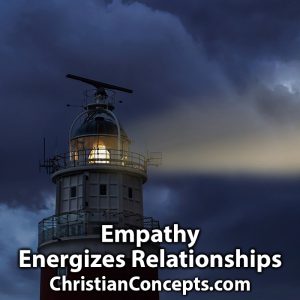Reading time: 4 minutes
Labels can promote better communication. But, they can also sow seeds of dissension. How and when should you use the power of labels?
How Labels Help
Labels are shortcuts. I could ask you for a dark red fruit that grows on trees. Because there is more than one type, I’d need to be more specific. I’d like the kind that is more tart than sweet. Instead of having to describe all the details, I could have said I would like some cherries.
Without labels, communication would be cumbersome at best. But, labels only help when we can agree on what the label is referring to. Maybe there are several varieties of cherries. But a cherry is a cherry, not an apple.
Shortcuts are most effective when all involved parties have a shared experience. What if we drove to a cherry farm and picked and ate cherries from the same tree? We’d probably have the same idea in mind when we use the word cherries.
What happens if there is no shared experience or the experience is so complicated that it frequently generates a unique experience? If, at the fruit farm, we ate two different species of cherries, one of which ripens faster than the other, we’d probably be thinking different things when we use the word cherries.
How Labels Harm
Labels such as gaslighting or narcissism have become quite popular recently. They definitely describe a complicated experience that can be easily misunderstood. In this case, I suggest you avoid the words and stick to the descriptions.
Gaslighting is a form of verbal abuse. Here is a definition from Wikipedia:
Gaslighting is a form of psychological manipulation in which a person or a group covertly sows seeds of doubt in a targeted individual or group, making them question their own memory, perception, or judgment. It may evoke changes in them such as cognitive dissonance or low self-esteem, rendering the victim additionally dependent on the gaslighter for emotional support and validation. Using denial, misdirection, contradiction and disinformation, gaslighting involves attempts to destabilize the victim and delegitimize the victim’s beliefs.
https://en.wikipedia.org/wiki/Gaslighting
Not only does gaslighting sound complicated, it also sounds evil–like a tactic the devil uses to cause believers to doubt their faith in Jesus Christ. When used intentionally as a weapon, it is abusive. Note also the phrase “covertly sows.” This means the gaslighter tries to be sneaky. They don’t want others to catch on to what they are doing. It’s premeditated.
My problem with using terms like gaslighting is that they are sometimes thrown around too casually by people engaging in black-and-white thinking. Some things are all-or-nothing and some have gradations. A woman is either pregnant or she’s not. However, a communication technique might only look like gaslighting and not qualify as abuse.
The so-called gaslighter might have no intentions to manipulate or abuse. What if they are only attempting to describe their own perspective? During communication, both people have a need to be heard. The person who labels others (as a gaslighter, narcissist, or other popular terms) might be the one participating in verbal abuse. It can become a way to avoid responsibility. It can be easy to label someone, thereby casting blame on them and correspondingly away from self.
Instead of using these labels which can be judgmental (calling someone guilty when you are not an unbiased judge), I suggest returning to the basics of communication. Instead of saying “You are gaslighting me,” focus on revealing your experience with something like, “I feel discouraged when you talk to me that way. I believe I am correct but I’m open to being convinced otherwise.” Leave some room that everyone involved can contribute to the problem.
I am not trying to explain away real abuse. One-sided communication does happen. What I’ve been suggesting only works when both people approach conflict resolution in good faith. The challenge is discerning between a plain ignorant person (someone having a bad day or someone who lacks understanding) and an evil person (someone who is being intentionally destructive).
The good news is a little bit of discernment goes a long way if you have good boundaries. Being confident and knowing who God made you to be will protect you from both the naive person and the evil fool. Keep in mind though that sometimes these two qualities, along with some of the best qualities, can all show up in the same person.
You cannot fool God, so don’t make a fool of yourself! You will harvest what you plant. If you follow your selfish desires, you will harvest destruction, but if you follow the Spirit, you will harvest eternal life.
Galatians 6:7-8 CEV
Read more about recovery from abuse.
Read more about how psychological buzzwords can be misused.
Image by Andreas Lischka from Pixabay
Last updated 2023/09/06






